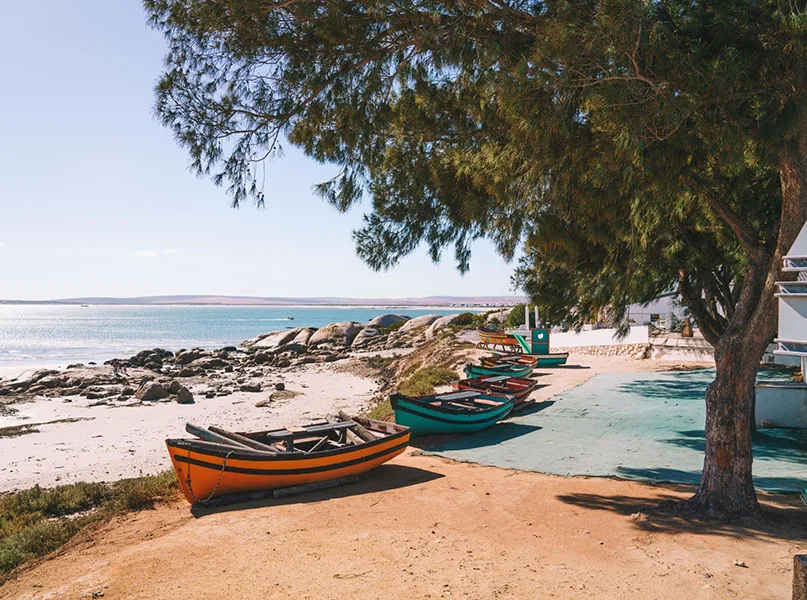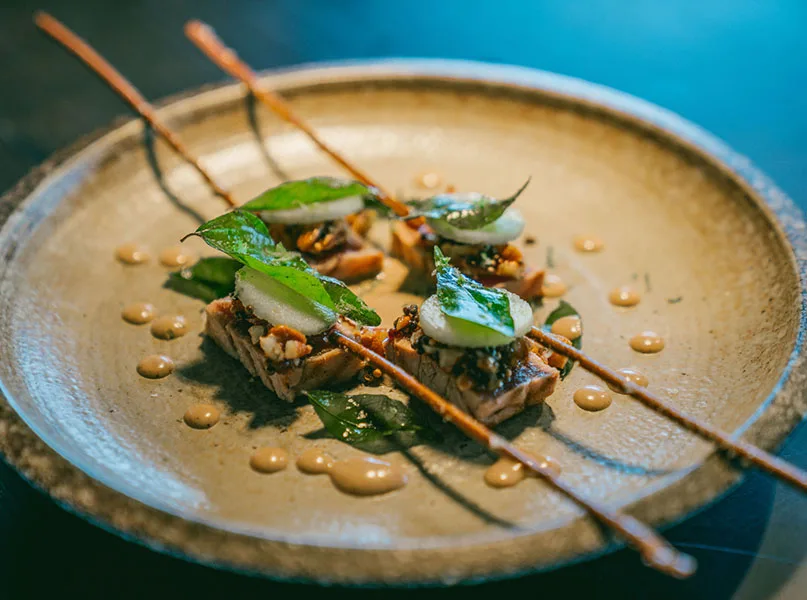Wrenelle Stander, CEO (WS): As the official tourism, trade, and investment promotion agency for Cape Town and the Western Cape, Wesgro has a clear mission to drive inclusive and sustainable economic growth, strengthen competitiveness, and create jobs. We are doing this by positioning the province as a globally competitive destination, and we’ve set our sights on doubling tourism by 2035.
Wesgro adopts a holistic approach to tourism, deploying multiple tools including destination marketing, research, tourism facilitation, and catalytic projects such as Cruise Cape Town, Cape Town Air Access, and the Convention Bureau.
The Western Cape enjoyed a bumper 2024:
- The province recorded a seven percent increase in international tourist arrivals, reaching 1.4 million visitors with an average length of stay of 12.7 nights.
- The revenue per available room in Cape Town showed an increase of 30.4 percent, outperforming global competitors.
- The number of international two-way passengers going through Cape Town International Airport (CTIA) reached 3.1 million – the highest number the airport has ever seen.
Looking ahead, our five-year strategic plan (FY26-30) outlines several exciting goals that will help us to attract between 800,000 and one million international tourists. These include:
- Securing 161 business event bids, with an estimated economic boost of ZAR4.5 billion.
- Welcoming 250 cruise ship calls to our ports.
- Expanding air connectivity through 10 new routes.
- Launching three high-impact global marketing campaigns.
- Engaging 12,500 international travel trade partners to showcase all the Western Cape has to offer.
India and China are amongst the fastest-growing outbound travel markets globally. Within this context, we have started the process of building new relationships and networks in new markets, including China, India, Brazil, the Association of Southeast Asian Nations (ASEAN), and the Middle East, whilst at the same time continuing our focus on established markets such as the US, UK, Europe, Africa, and South Africa (SA).
In addition, we engaged with the tourism trade on roadshows in India and China using South African tourism platforms; renewed our membership with the Pacific Asia Travel Association (PATA) to network into the Asian tourism industry and with other tourism promotion agencies; and initiated meetings with Trusted Tour Operators (TTOs) and welcomed the first group of Chinese tourists with TTO visas at CTIA.
In addition, we continued to focus on traditional markets, with in-market business engagements and exposure of trade and media to in-destination experiences. 300 travel trade and media were hosted in the province and 1,800 travel trade were engaged in market.
Similarly, the domestic market is important for the Western Cape as it sustains the tourism sector throughout the year. During 2024, domestic trips contributed 45 percent of total spend.
Wesgro has also promoted key visitor experiences to address regional spread. We partnered with communities on 22 leisure events across the province and in townships; launched four digital visitor experience playbooks and sales tools for the local and international tourism industry; and hosted Western Cape pavilions at three travel trade shows – Africa’s Travel Indaba, World Travel Market (WTM) Africa, and Meetings Africa – winning Platinum in the Large Green Stand category at the latter.

How has the Western Cape continued to position itself as a highly competitive business and leisure travel destination?
WS: The Western Cape has firmly established itself as one of the more competitive business events and leisure travel destinations on the continent – and that position continues to strengthen.
What makes the province so compelling is its dual offering – a world-class business environment set against the backdrop of extraordinary leisure experiences.
Cape Town and the Western Cape boast globally competitive infrastructure, from state-of-the-art convention centres and meeting venues to seamless connectivity, premium accommodation, and reliable transport.
The Cape Town International Convention Centre (CTICC), for example, continues to attract high-profile international conferences and exhibitions, driving knowledge exchange, investment, and global visibility.
Business events are not only an economic driver but also a catalyst for regional spread. Delegates are increasingly extending their stays or returning with family to explore beyond the conference room – venturing into the Cape Winelands, Garden Route, Klein Karoo, Cape Karoo, and the West Coast. This creates a ripple effect of economic benefit across the province, particularly for smaller towns and rural communities.
The strength of our business tourism offering lies in its integration with our leisure value proposition. You can close a deal in the morning and be on a wine tram, hiking trail, or sunset cruise by the afternoon.
It’s this ability to combine productivity with personal reward that sets the Western Cape apart and why we’re seeing consistent interest from international markets.
The Cape Town and Western Cape Convention Bureau, powered by Wesgro, is contributing to this success. It has secured the highest number of bids for business events on the African continent, according to the International Congress and Convention Association (ICCA) Global Ranking Report 2024.
This momentum has continued. In the latest ICCA rankings, Cape Town hosted 58 international association meetings in 2024 – up from 42 in 2023 and 30 in 2022 – representing a 38 percent year-on-year increase.
This growth has lifted Cape Town 15 places in the global rankings to 35th and placed it amongst the top 10 cities globally for average attendance per event, with an impressive 717 delegates per meeting.
The city now stands shoulder to shoulder with global conference hubs such as Dubai, Barcelona, and Melbourne, reinforcing the strategic value of hosting major international meetings.
Between 2013 and 2024, Cape Town hosted an impressive 505 international association meetings, whilst Stellenbosch, due to its academic hub, has emerged as a growing business events destination, hosting 100 meetings during this period.
Other towns, including George, Grabouw, Knysna, and Paarl, each hosted at least one international meeting over the past year, reflecting a broader provincial footprint in the global business events space.
Wesgro will continue to leverage business events taking place in the Western Cape targeted at trade, investment, and tourism promotion opportunities. On the business events side, the agency secured 36 conference bids valued at ZAR750 million during FY25 and undertook six site visits to pitch for new bids reaching well into 2029.
A key focus going forwards will be to increase relationships with academic institutions and create knowledge exchange opportunities that link academia and business.

Since we last spoke, how has the province continued to appeal to various types of travellers looking for specific experiences?
WS: For adventure seekers, the province offers everything from soft, accessible outdoor experiences like kayaking with penguins in Simon’s Town or e-biking through vineyards to more extreme pursuits like shark cage diving, multi-day hikes through mountain passes, and world-class trail running and mountain biking routes.
One of the Western Cape’s strongest assets is its infrastructure, with excellent roads, well-maintained tourism routes, and a network of welcoming towns and communities. This makes it easy for visitors to go beyond well-trodden paths and discover the unexpected – small-batch gin distilleries in remote hamlets, farm stalls with cult followings, or art collectives nestled in semi-desert landscapes.
What keeps people coming back, though, is the heart of the place – our service culture and hospitality. The warmth of the people, the professionalism of the sector, and a consistent focus on quality mean travellers feel not just welcomed but truly looked after.
What distinctive features made the Western Cape stand out as an inspiring destination over the past year?
WS: Over the past year, the Western Cape has continued to distinguish itself as a truly inspiring destination, not just for its beauty but the depth and diversity of its natural and urban offerings.
One of the standout moments was the recognition of the province’s unique environmental significance with UNESCO World Heritage Site status awarded to additional Cape Floral Region Protected Areas. This reaffirmed what locals and returning visitors already know – that the Western Cape is one of the world’s richest and most extraordinary biodiversity hotspots.
The Cape Floral Region is the only floral kingdom found entirely within one country, and it’s the smallest yet most botanically diverse of them all. For nature lovers, this means even a short hike or drive can introduce you to endemic plant species found nowhere else on Earth; it’s like exploring a living, breathing botanical wonderland.
What makes the province even more inspiring is how seamlessly urban life blends into these natural settings. In Cape Town, you can start your day with a sunrise trail on Table Mountain and end it dining at a world-class restaurant with views of the Atlantic Ocean.
It’s this harmony – where a vibrant city pulse exists within arm’s reach of vast, untouched wilderness – that makes the Western Cape so distinctive and compelling for travellers looking for inspiration, escape, and connection all in one place.
As the events capital of SA, can you update us on what visitors can look forward to in the Cape Town calendar?
WS: Cape Town proudly upholds its reputation as SA’s events capital in 2025, offering a vibrant tapestry of experiences that cater to diverse interests and passions.
From high-energy sports competitions and world-class music festivals to cultural celebrations and industry-leading expos, the city’s calendar is as dynamic as its landscape.
Sports enthusiasts can look forward to the iconic Sanlam Cape Town Marathon on 18th-19th October, a premier event that attracts runners from around the globe. The Cape Town 10s, scheduled for 31st January to 1st February, combines social sports with live entertainment, creating a festive atmosphere for participants and spectators alike.
Music and culture take centre stage with events like the Jive Cape Town Funny Festival from 2nd-29th June, showcasing top comedic talent, the internationally renowned Rocking The Daisies festival, featuring a diverse lineup of artists, and the Cape Town Carnival, transforming the city streets into a vibrant display of creativity and community spirit. In exciting news, Franschhoek will be hosting the Montreux Jazz Festival from 27th-29th March 2026.
Loeries Creative Week from 29th September to 10th October celebrates excellence in the advertising and brand communication industry, drawing creatives from across the continent.
Cape Town’s event offerings are further enriched by its unique setting, where urban sophistication meets natural beauty. Whether enjoying a concert against the backdrop of Table Mountain or participating in a marathon along its scenic coastline, the city provides unforgettable experiences that resonate with both locals and visitors.

How has the tourism industry in the Western Cape progressed since we last spoke?
WS: It’s been an exciting year for tourism in the Western Cape, with recent figures from South African Tourism (SAT) painting a picture of steady growth.
In 2024, the province accounted for 15.5 percent of SA’s total international tourist arrivals from overseas and African markets, welcoming 1.4 million visitors – a seven percent increase on the 1.3 million recorded in 2023 (source: SAT).
Of these, more than one million tourists hailed from overseas markets including Asia, Australasia, the Americas, Europe, and the Middle East, whilst the remaining 338,030 visitors came from the rest of Africa. The UK, US, and Germany led the way as top overseas source markets, whilst Zimbabwe, Namibia, and Lesotho remained key contributors within Africa.
When it comes to spending, the Western Cape performed impressively, holding the second-highest share (24.8 percent) of SA’s total foreign direct spend in 2024. The province attracted a remarkable ZAR22.7 billion in foreign direct spend, with ZAR18.8 billion from overseas travellers and ZAR3.9 billion from African markets.
Visitors continued to enjoy longer stays, with total bed nights from overseas and African markets, (excluding SA residents) reaching 17.0 million in 2024 – up five percent year-on-year (source: SAT).
Domestic tourism also enjoyed positive momentum. In 2024, the Western Cape welcomed 3.5 million domestic trips, reflecting a 4.8 percent increase compared to the previous year. Bed nights rose by 4.6 percent, reaching 13 million, with an average stay of 3.8 nights.
The province also secured its position as a top domestic destination, recording the third-largest domestic overnight expenditure in the country at ZAR18.6 billion – a substantial 25.1 percent rise from 2023 (source: SAT).
Adding to these milestones, CTIA celebrated a historic achievement in 2024, welcoming three million two-way international passengers for the first time ever, a 10 percent increase from 2023.
Cape Town’s Cruise Terminal was not to be outshined, as it also recorded a strong season welcoming 24 ship calls in March 2025 alone. In total, 84 ship calls are forecasted for the 2024/25 season, which concludes in June – up from 67 in the previous season.
Overall, these figures underscore a strong and vibrant tourism landscape, one that continues to attract, welcome, and delight travellers from across the globe.

“Our focus going forwards is on diversifying both our product and our markets. We want travellers to discover more of the province, go beyond the iconic spots, and engage with the richness and variety of experiences in lesser-known regions.”
Wrenelle Stander, CEO, Wesgro
Finally, are you still optimistic about the future of tourism in the Western Cape?
WS: Absolutely – we remain deeply optimistic about the future of tourism in the Western Cape.
What sets this province apart is the strong, collaborative spirit across the entire tourism value chain. From local communities and small businesses to major attractions, government partners, and private sector stakeholders, everyone is pulling in the same direction to grow and strengthen the sector.
A major driver of this momentum is Cape Town Air Access, a catalytic project powered by Wesgro, which continues to play a crucial role in expanding direct air access to Cape Town and the Western Cape. This doesn’t just open the door for more international visitors – it also makes it easier for regional travellers to explore the province.
At the same time, we’re actively working with national partners to reduce barriers to entry, whether that’s simplifying visa processes or improving connectivity.























